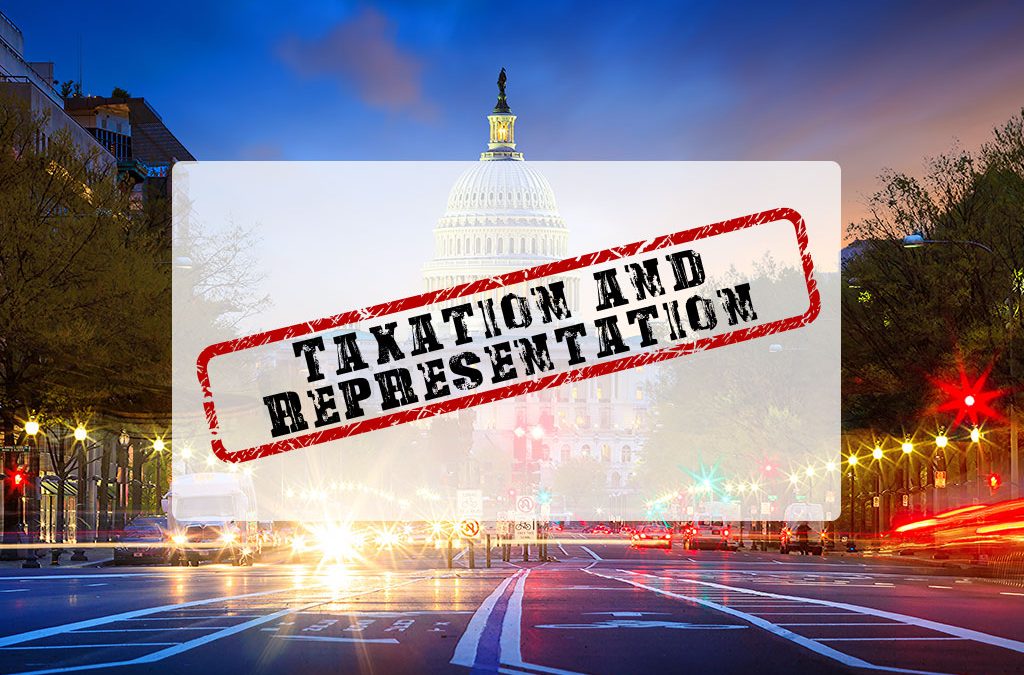Policy Is Moving. Add Your Voice Now.
By Jan. 3, 2025, four of the 14 Democrats on the Senate Finance Committee will have departed. In contrast, all 13 Republicans will return to the Senate in 2025. How the Senate handles committee assignments will depend on the election results, who wins the race for Senate Republican leader, and whether either party changes how they select new members for approval by the chamber. The Finance Committee has grown from 20 members in 2000 to 27 members today, and though leadership has discussed shrinking the size of the committee in the past, it has not occurred. In 2025, Republicans are unlikely to agree to ratios that will require them to remove one of their current members for the 2025-2026 term; accordingly, GOP membership is likely to remain constant and grow by one only if the GOP wins a majority of Senate seats. If that majority is 52-48 or 51-49, then the most logical ratio would be 14 Republicans and 13 Democrats.
Sen. Raphael Warnock (D-GA). Raphael Warnock serves as the junior senator from Georgia, having been concurrently elected with Sen. Jon Ossoff (D-GA) in a set of races that flipped the Senate to Democratic control in 2021. He is the first Black senator from Georgia and currently sits on the Senate Banking, Agriculture, and Commerce Committees. Warnock represents a compelling pick, as he would be the first Democrat representing a Southern state since former Sen. Bill Nelson (D-FL) in the 115th Congress. He grew up as the 11th of 12 children in public housing in Savannah, Georgia, and rose to graduate from Morehouse College. He subsequently earned a Ph.D. from Union Theological Seminary and became a pastor at the influential Ebenezer Baptist Church in Atlanta, where he often blends religious teachings with calls to action for social justice. Warnock’s breadth of experience makes him a unique choice to champion the middle- and working-class as a member of the Finance Committee.
Harris Begins Detailing Economic, Tax Policy Proposals: Over the past month, Vice President Kamala Harris has introduced numerous economic and tax proposals as she seeks to balance her new position at the top of the Democratic ticket with policy priorities to win over voters and provide a preview of a potential Harris administration. One of Harris’s first packages of tax proposals is centered on lowering the costs of education, child care, health care, long-term care, housing, and groceries. She also proposed cutting taxes for middle-income families. She first presented many of these policy proposals at a rally in North Carolina on Aug. 16. More details on a few of Harris’s proposals are included below:
Trump Adds to List of Tax Proposals: At a speech delivered at the Economic Club of New York on Sept. 5, former President and 2024 Republican nominee Donald Trump continued to outline numerous economic and tax proposals, as he seeks to draw a contrast from Vice President Harris, asserting that his proposals would lead to substantial economic growth in a current economy that shows some signs of a slowdown. He specifically discussed proposals…
Wyden-Smith Tax Package Fails on Senate Floor, Foreshadowing Difficulties for 2025: The Senate was unable to pass the Tax Relief for American Families and Workers Act (H.R. 7024) after Senate Majority Leader Chuck Schumer (D-NY) failed to obtain cloture on the motion to proceed to the bill on Aug. 1. The procedural vote on the bill was 48-44, with 60 votes needed to prevent a filibuster and proceed to consideration of the bill. Republican Sens. Josh Hawley (R-MO), Markwayne Mullin (R-OK) and Rick Scott (R-FL) broke ranks with Senate Republicans to vote in favor of the bill, while Sens. Joe Manchin (I-WV) and Bernie Sanders (I-VT) voted against the bill. Leader Schumer took procedural steps to preserve the possibility of bringing the bill up for a vote before the end of the Congress, although the chances of such a move appear slim.

About Brownstein Hyatt Farber Schreck
Brownstein Hyatt Farber Schreck is a unique law firm. Walk into any of our offices and you’ll immediately recognize a different type of energy. Complacency doesn’t have a place here. Flexibility and inspiration do. Our culture and enthusiasm allow our attorneys, policy consultants and legal staff to stay ahead of our clients’ needs and provide them with the resources they require to meet their business objectives.
We hope you’ve enjoyed this article. While you’re here, we have a small favor to ask…
As we prepare for what promises to be a pivotal year for America, we’re asking you to consider becoming a supporter.
The need for fact-based reporting of issues important to family offices and successful families and protecting a lifetime of savings has never been greater. Now more than ever, family offices and successful families are under fire. That’s why Family Enterprise USA Action is passionately working to increase the awareness of issues important to family offices and successful families, while continuing to strengthen our presence on Capitol Hill.
Family Enterprise USA Action engages with legislators on Capitol Hill on behalf of family offices, successful families, and family-owned businesses. It is focused exclusively on the critical tax and economic policies that impact them. Since 1995, FEUSA Action has been the leading advocacy group working daily in Washington, D.C., to reduce and eliminate estate tax, gift tax, and generation skipping transfer tax while blocking increased income and capital gains taxes, the creation of a wealth tax, and other hostile policies that punish hardworking taxpayers and success in the U.S. It is a bipartisan 501.c4 organization.
#incometax #CapitalGainsTax #R&DExpensing #DontPunishSuccess #GrantorTrusts #likeKindExchanges #AcceleratedDepreciation #EstateTax #Deathtax #wealthtax #taxLegislation #incometaxrates #repealestatetax #FamilyOffice #SuccessfulFamilies @PolicyAndTaxationGroup @DitchTheEstateTax #PolicyAndTaxationGroup #DitchTheEstateTax #FamilyEnterpriseUSAAction

